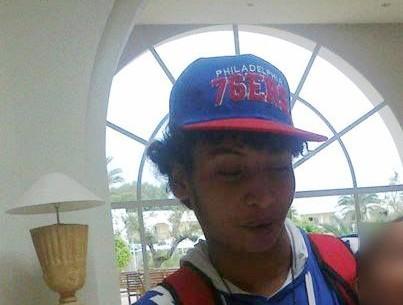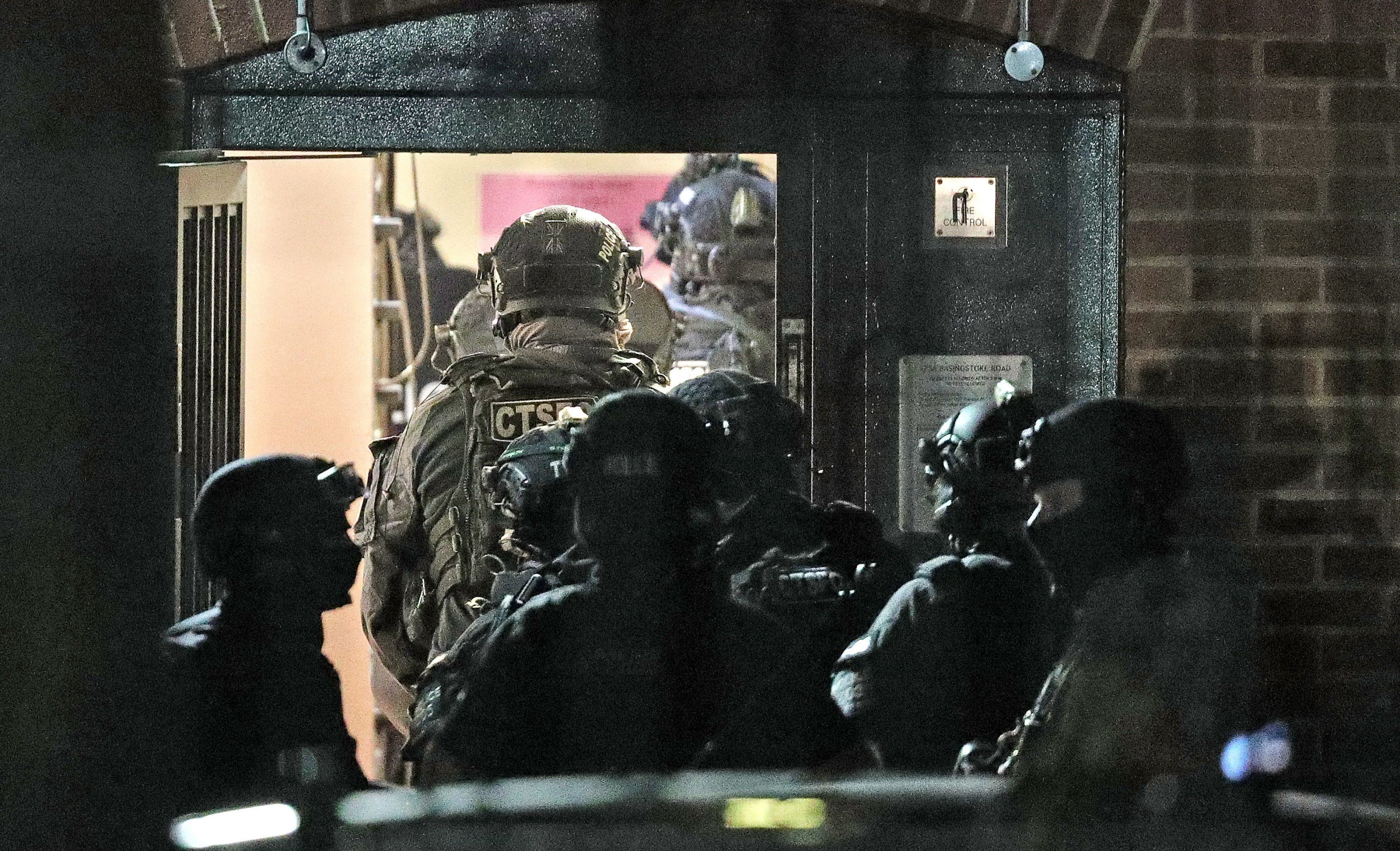Reading terror attack: Libyan suspect may have considered travelling abroad to join Islamist group, security sources say
Khairi Saadallah, 25, was released from a short prison sentence last year
Your support helps us to tell the story
From reproductive rights to climate change to Big Tech, The Independent is on the ground when the story is developing. Whether it's investigating the financials of Elon Musk's pro-Trump PAC or producing our latest documentary, 'The A Word', which shines a light on the American women fighting for reproductive rights, we know how important it is to parse out the facts from the messaging.
At such a critical moment in US history, we need reporters on the ground. Your donation allows us to keep sending journalists to speak to both sides of the story.
The Independent is trusted by Americans across the entire political spectrum. And unlike many other quality news outlets, we choose not to lock Americans out of our reporting and analysis with paywalls. We believe quality journalism should be available to everyone, paid for by those who can afford it.
Your support makes all the difference.The Libyan man accused of launching a terror attack that left three victims dead in Reading may have considered travelling abroad to wage jihad, according to security sources.
Khairi Saadallah, a 25-year-old asylum seeker, came to the attention of MI5 in 2019 when they received information from a foreign intelligence service that he was seeking to join an Islamist group in the Middle East.
Mr Saadallah, it is believed, had contacted extremists abroad. He was put under investigation, but that was discontinued when the journey did not take place.
He was subsequently jailed after being convicted of a minor crime, and authorities would not confirm whether he was still under probation supervision at the time of the attack.
Security agencies are investigating whether Mr Saadallah had been indoctrinated by Islamist extremism, and the fellow inmates he met while serving a non-terror related sentence, amid warnings over radicalisation inside British jails.
They are also looking at whether the suspect was influenced by online material, and if this had taken place during the months of lockdown.
The head of the Prevent counter-extremism programme previously told The Independent that referrals had fallen sharply during the coronavirus pandemic, raising fears that potential threats were not being spotted by probation workers, NHS staff and other agencies forced to reduce contact with vulnerable people.
Chief Superintendent Nik Adams said Isis supporters were calling for attacks on soft targets during lockdown in the hope that police and security services would be “distracted and overwhelmed”.
“We’re seeing the exploitation of the circumstances to encourage acts of violence,” he added.
“My fear is that people have got more opportunity to spend more time in closed echo chambers and online chat forums that reinforce the false narratives, hatred, fear and confusion that could have a radicalising effect.”

Mr Saadallah is believed to have arrived in the UK several years ago and had claimed that his family had suffered in the violence linked to Libya’s civil war and the overthrow of the regime of Muammar Gaddafi.
Neighbours at the council-owned flat block where he lived, just under two miles from the scene of the mass stabbing, believed he had been recently released from prison.
Three people were killed and a further three victims seriously injured, making it the deadliest terrorist incident to strike Britain since the June 2017 London Bridge attack.
One of the victims has been named locally as teacher James Furlong, the head of history, government and politics at The Holt School in Wokingham.
A letter from the school described him as a “kind and gentle man” who had a “real sense of duty and cared for each and every one of our students”.
One of the patients admitted to Royal Berkshire Hospital has been discharged, while another remains in a stable condition under observation, a spokesperson said.
Officials in Libya told The Independent that the Libyan national was not known to the authorities.
“He is completely unknown to me and the government. No one has heard of him. It’s a truly sad and unfortunate event. My deepest sympathies and condolences to the families of the victims,” said Hassan Al-Houni, a spokesman for the recognised Government of National Accord.
It is the fourth suspected terrorist knife attack in six months, following those at Fishmongers’ Hall in November, HMP Whitemoor prison in January and Streatham in February.
On 4 November, the UK's terror threat level was lowered from severe to substantial, and officials said there had been “positive developments” in reducing the risk of attacks.
Police are looking at information provided by dozens of callers including witnesses to the multiple stabbings, which took place in a park packed with friends enjoying a warm Saturday evening.
One lead, according to a Whitehall official, concerns Manchester, but it is unclear at present whether this will have any significance.
Assistant Commissioner Neil Basu, the head of UK counterterror policing, said inquiries conducted so far did not suggest anyone else was involved in the Reading attack.
“However, detectives working closely with the security services continue to make enquiries to ensure that there were no others involved and our investigative priority remains to ensure that there is no related outstanding threat to the public,” he added.
“Although the motivation for this heinous act is far from certain, Counter Terrorism Policing South East has taken on responsibility for leading this investigation.”
Police said cordons would remain in place as investigations continued in Forbury Gardens, where the attack started shortly before 7pm on Saturday evening.
A personal trainer who fled the attack said the knifeman had shouted “unintelligible words” before stabbing multiple victims in the neck.
The suspect was tackled by unarmed police officers nearby and taken into custody, where he remains.
Heavily-armed Counter Terrorist Specialist Firearms Officers later searched a flat in Basingstoke Road, in the Reading suburb of Whitley.

The prime minister held a meeting with security officials, police and senior ministers over the incident on Sunday morning.
Boris Johnson said he was “appalled and sickened that people should lose their lives in this way and our thoughts are very much with the family and the friends of the victims today”.
He added: “If there are lessons we need to learn about how we handle such cases, how we handle the events leading up to such cases, then we will learn those lessons and we will not hesitate to take action where necessary.”
Security officials point to a number of recent terror-related incidents in Europe.
Spanish police arrested an alleged Moroccan Isis supporter in Barcelona on the suspicion that he was planning to carry out attacks last month.
A 29-year-old man was arrested in Paris last month after attacking two motorcyclists and then declared after being arrested: “I did it for Isis.”
A 33-year-old Sudanese man was charged with alleged terrorist offences and murders after the killing of two people in the town of Romans-sur-lsere in southeastern France.
Additional reporting by Bel Trew
